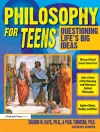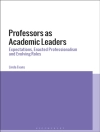Why has there been a widespread sense of homelessness in China in the recent decades? Can native place still be called home in the twenty-first century?
One man’s story from Anyang – a county in the North China Plain – may hold answer to these intractable conundrums.
Anyang was established as a county when China became a unified empire in the 3rd Century BCE. For centuries, the local people made the county their home, where they buried their ancestors and dwelled with their kinsfolk. Talented sons of gentry families could pursue careers in the larger world through civil service, but it was in Anyang that their civil-examination-based careers began, and eventually it was here that they returned to for rest.
The political and intellectual revolutions of the 20th century shattered this life-world of “old” China and transformed the meanings of life and place in Anyang. Unlike their forefathers, most educated men now pursued diverse career patterns, loosened links with their ancestral home-place, and rarely returned once they were gone. Despite these disruptions and destructions, Zhang Jinjian (1902-1989), an Anyang native and American-trained political scientist, launched a campaign to renew and remodel the age-old gentry localism, and bring it into the young Republic of China. The effort was eventually crushed in the Communist revolution, after which Anyang was reduced to little more than an administrative entity in a totalitarian regime. In its failure, however, the experiment shows the road not taken in modern China and reveals an alternative to the rootless People’s Republic.
Om författaren
Dr Dong Wang Ph D is a historian of U.S.-China relations, modern and contemporary China, and China and the world. She is a naturalized American citizen (since 2006) and a permanent German resident (since 2012) based in Boston, Massachusetts, the Lower Rhine of Germany, and Shanghai where she holds a university chair in history. She conducts original research in Chinese, English, French, German, and Japanese while also learning Russian. Her books include Longmen’s Stone Buddhas and Cultural Heritage: When Antiquity Met Modernity in China (2020), The United States and China: A History from the Eighteenth Century to the Present (2nd and rev. ed. 2021), Managing God’s Higher Learning: U.S.-China Cultural Encounter and Canton Christian College (Lingnan University), 1888-1952 (2007), and China’s Unequal Treaties: Narrating National History (2005).












